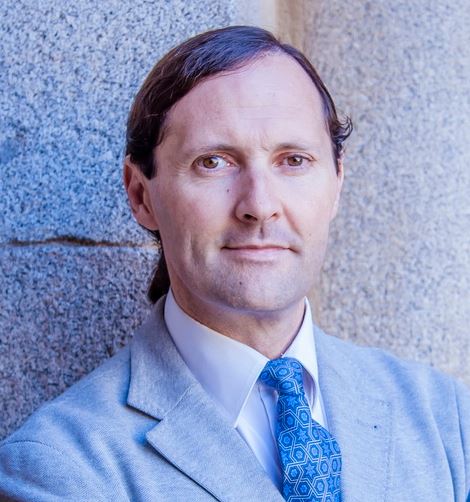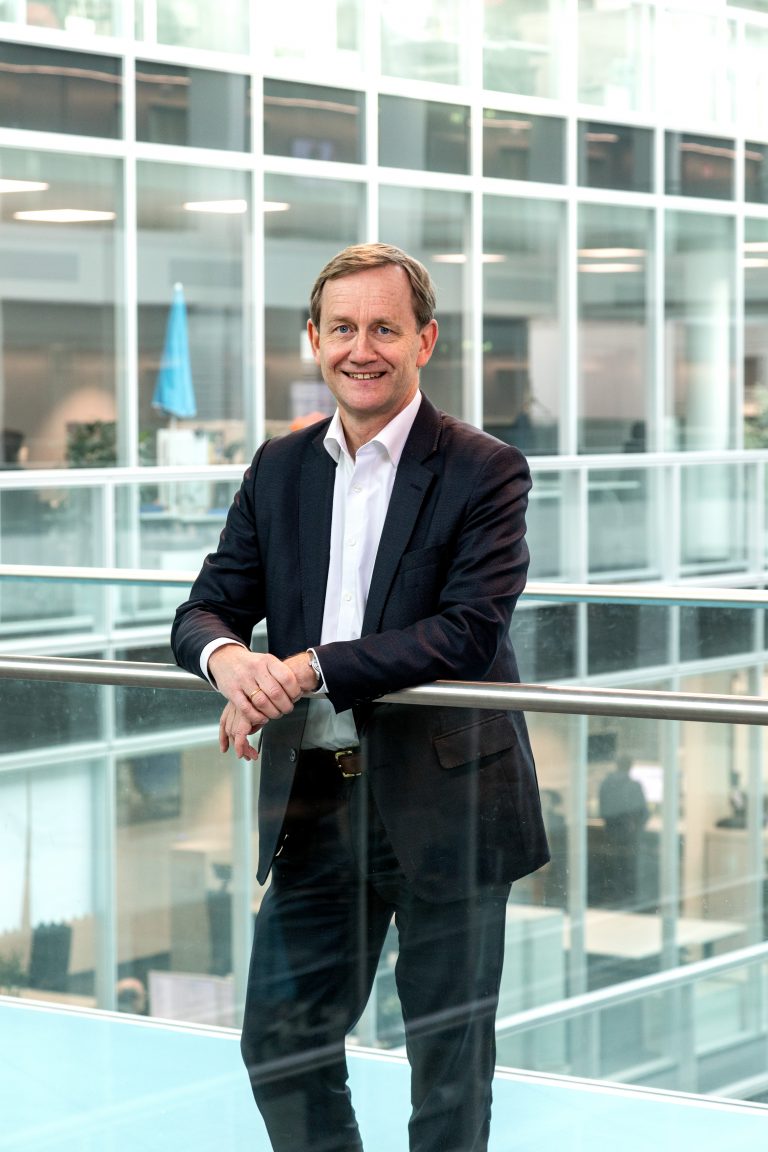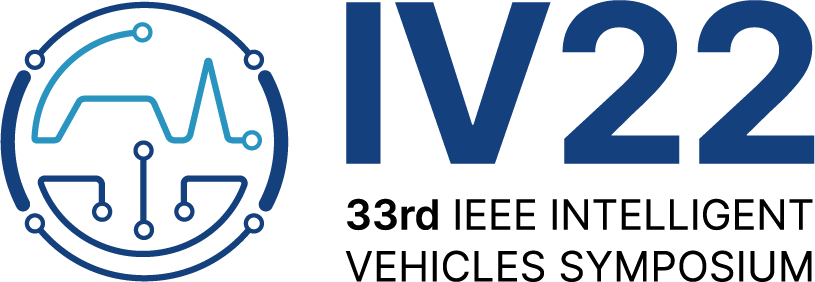We will introduce our plenary speakers to you here one by one. You can look forward to exciting presentations in Aachen!
Prof. Dr.-Ing. Christoph Stiller
KIT Karlsruhe, Germany
iv22program@ika.rwth-aachen.de

Miguel Ángel Sotelo
Full Professor Department of Computer Engineering University of Alcalá
Road Users’ Behavior Prediction
The Path towards Trustworthy and Friendly-interacting Autonomous Vehicles
Self-driving cars have experienced a booming development in the latest years, having achieved a large degree of maturity. Their scene recognition capabilities have improved in an impressive manner, especially thanks to the development of Deep Learning techniques and the availability of immense amounts of data contained in well-organized public datasets. But still, self-driving cars exhibit limited ability to deal with certain types of situations that become natural to human drivers, such as entering a congested round-about, dealing with cyclists, or giving way to a vehicle that is aggressively merging onto the highway from a ramp lane. All these tasks require the development of advanced prediction capabilities in order to anticipate the most likely behaviors and trajectories for all traffic agents around the ego-car, namely vehicles and vulnerable road users, in a given time horizon. In addition, predicting and understanding the behavior of other road users opens the gate to the development of trustworthy and friendly-interacting autonomous vehicles by separating road users’ own assertiveness from the reactions to other road users’ actions. This talk will present some innovative solutions for efficient motion prediction in the context of autonomous driving as well as the way these predictions can be leveraged in order to achieve optimal interactions between autonomous vehicles and road users. Latest results achieved in the framework of the EU-funded BRAVE project will be discussed as a corner stone to shed light on the path forward in this field.
Biography Miguel Ángel Sotelo
Miguel Ángel Sotelo received the degree in Electrical Engineering in 1996 from the Technical University of Madrid, the Ph.D. degree in Electrical Engineering in 2001 from the University of Alcalá, and the Master in Business Administration from the European Business School in 2008. He is currently a Full Professor at the Department of Computer Engineering of the University of Alcalá. In 1997, he was a Research Visitor at the RSISE of the Australian National University in Canberra. His research interests include Self-driving cars, Predictive and Cooperative Systems. He is author of more than 300 publications in international journals, conferences, and book chapters, being in the top 1% of researchers in the field of Logistics and Transport, according to the ranking elaborated by the University of Stanford in 2020. He has been recipient of the Best Research Award in the domain of Automotive and Vehicle Applications in Spain in 2002 and 2009, and the 3M Foundation Awards in the category of eSafety in 2004 and 2009. Miguel Ángel Sotelo has served as Project Evaluator, Rapporteur, and Reviewer for the European Commission in the field of ICT for Intelligent Vehicles and Cooperative Systems in FP6 and FP7. He was Director General of Guadalab Science & Technology Park (2011-2012) and co-founder and CEO of Vision Safety Technologies (2009-2015). Miguel Ángel Sotelo served as President of the IEEE ITS Society (2018-2019), Editor-in-Chief of the IEEE Intelligent Transportation Systems Magazine (2014-2016) and General Chair of the 2012 IEEE Intelligent Vehicles Symposium (IV’2012). He was recipient of the ITSS Outstanding Editorial Service Award in 2010, the IEEE ITSS Outstanding Application Award in 2013, and the Prize to the Best Team with Full Automation in GCDC 2016. At present, he is Vice-President for Finance of the IEEE Intelligent Transportation Systems Society.

Jack Weast
Vice President, Automated Vehicle Standards, Mobileye
Driving Safely in an Age of Automation
Despite rapid technological advancements in the pursuit of a driverless future, one giant roadblock still exists to the safe and scalable deployment of automated vehicles: the lack of consensus on what it means for a machine to “drive safely”. Other industries, like aerospace, benefitted from partnerships with government where together risks introduced by automation systems were analyzed and understood with mitigations and levels of acceptable risk set by regulation in advance of deployment.
Inspired by this proven path, there is a better way for the Automated Vehicle industry, and a new standard – IEEE 2846 – paves the way towards Assured Autonomy, done in a responsible, data driven manner. In this engaging talk, one of the industry’s foremost experts on safety of Automated Vehicles and how to define, measure and assess it, will provide an expansive and definitive view of the most important problem yet to be solved for the automated vehicle industry, and how to solve it, together with the research community and government regulators.
Biography Jack Weast
Jack Weast is an Intel Fellow and Chief Technology Officer of the Corporate Strategy Office as well as a Vice President for Automated Vehicle Standards at Mobileye. In this dual role, Jack is responsible for researching and evaluating new technological strategies, their implications and potential outcomes in enabling Intel’s business needs while also leading a global team working on AV safety technology and the related standards that will be needed to understand what it means for an AV to drive safely.
In his over 20-year career at Intel, Jack has built a reputation as a change agent in new industries with significant technical contributions to a wide range of industry-first products and standards in industries that are embracing complex high performance heterogeneous computing for the first time. With an End to End Systems perspective, Jack combines a unique blend of embedded product experience with a knack for elegant System and Software design.
Jack is the co-author of “UPnP: Design By Example”, and is the holder of over 40 issued patents with dozens pending. Jack was recently inducted into Portland State University’s Maseeh College Academy of Distinguished Alumni in recognition of Jack’s achievements, leadership and service to the Engineering and Computer Science Profession, as well as to Society. Outside of work he is a classical pianist and never turns down an opportunity to take the karaoke stage.

Jan Becker
CEO and Co-Founder of Apex.AI, Inc.
Managing Director of Apex.AI GmbH
Chairman of the Board of Apex.AI Sweden AB.
The automotive industry is driving toward software-defined vehicles —
What if cars could be as easy to program as smartphones are today?
Intelligent Vehicles heavily rely on software as a basis for their implementation. But in today’s production vehicles, automotive OEMs are stitching together disconnected software components to build proprietary platforms. Now the industry is moving toward new generations of the E/E-architecture based on centralized high-performance computers to support the megatrends toward electric, self-driving, shared, and connected vehicles. But the vehicle software architecture is lagging behind the hardware architecture.
Now imagine a world in which software throughout the whole vehicle is truly integrated end-to-end. A primary vehicle operating system on the outside — but a software development kit on the inside — to abstract complexity away from developers and based on open APIs, robust and flexible enough to cover all compute domains throughout the vehicle.
This talk approaches the development of intelligent vehicles from the angle of efficient software development. We analyze the requirements for software-defined vehicles as well as the current state-of-the-art, discuss challenges and illustrate these using the automotive development V-cycle as an example. We propose a common cross-domain SDK as the solution to improve the efficiency of software development and as the enabler for a common mobility digital ecosystem and intelligent vehicles in production.
Biography Jan Becker
Jan Becker is CEO and Co-Founder of Apex.AI, Inc. He is also the Managing Director of the Apex.AI GmbH and Chairman of the Board of Apex.AI Sweden AB. Prior to founding Apex.AI, he was Senior Director at Faraday Future responsible for Autonomous Driving and Director at Robert Bosch LLC responsible for Automated Driving in North America.
Since 2010, Jan is Lecturer at Stanford University for autonomous vehicles and driver assistance. Previously, he was a visiting scholar at the University’s Artificial Intelligence Lab and a member of the Stanford Racing Team for the 2007 DARPA Urban Challenge. Jan earned a Ph.D. in control engineering from the Technical University of Braunschweig, Germany, a master’s degree in mechanical and aerospace engineering from the State University of New York at Buffalo, USA, and a master’s degree in electrical engineering from the Technical University of Darmstadt, Germany.

Thomas Form
Head of Electronics & Vehicle Research at Volkswagen Group
Banquet speech: Autonomous driving and the “long tail”
For years now, we have been witnessing quite a number of impressive autonomous driving demonstrations and pilots from about a dozen companies across the globe. While a solid double-digit billion amount is invested in the development of this technology yearly, the wide-scale commercial launch seems to keep being posted again and again.
Two reasons are responsible for this. First, the challenges of developing the most complex technology ever developed in the automotive sector have too often been underestimated. Next to the pure technical challenges of implementation, driving at least as safely as a human driver – if not x times better – is proving to be much more challenging to verify than it initially appeared. Also, the ambitious promises of many start-ups founded in the last decade may have also possibly contributed to a general underestimation of these challenges. Because who would invest in a start-up that promises a successful implementation in only more than 10 years?
Second, a successful market entry requires not only a technical solution but also a lucrative business model. While the calculation seems simple at first glance (replace the human driver with a digital driver), it proves to just as challenging given the level of investment required in the development as well as the cost of hardware and software per vehicle. Further, the costs of replacing many of the activities that a human driver does on the side such as supervision, cleaning, charging, etc. should not be underestimated. The old saying in the automotive industry, the effort is not as much in the technical development as it is in achieving cost targets, seems to still apply. Only through large fleet volumes will we ever amortize this immense investment.
Biography Thomas Form
Born 1959, Thomas Form studied Electrical Engineering at the University of Braunschweig, Germany, joined the Institute for Communication Engineering as research fellow in 1987 and received his Ph.D. in 1992.
From 1992 to 2002 he worked as a senior engineer in the Centre for Electromagnetic Compatibility of Volkswagen AG and was appointed as a honorary professor of Westsächsische Hochschule, Zwickau.
In 2002 Dr. Form became in charge of Telephone-/Telematics and Antenna systems development for Volkswagen.
He became a professor for „Electronic Vehicle Systems“ in the Institute of Control Engineering at the Technical University Braunschweig in 2005 and participated with his CAROLO-Team in the finals of the DARPA URBAN Challenge 2007 and founded the student competition for autonomous driving cars CAROLO-Cup.
From 2007 to 2009 he was in charge of concept development, module- and project management in the VW Electric/Electronic development.
In 2009 he was appointed as head of the “Electronics and Vehicle Research” within Volkswagen Group research. Major achievements were the presentation of AUDI “Jack” vehicle driving in L3 automatic mode with Journalists from San Francisco to CES 2015 in Las Vegas and the presentation of the SAE L5 autonomous driving pod “SEDRIC” in 2017.
From 2013 to 2020 he was a board member of the “Lower Saxony Centre for Vehicle Technology, NFF). Together with Prof. Lemmer, DLR he was the coordinator of the German national funded project PEGASUS which tried to answer the question “SAE L3 Highway Chauffeur – how safe is safe enough and how to prove it” from 2016 to 2019 and he got the Uni-DAS e.V. ADAS Award for significant influence on the development and introduction of driver assistance systems in 2017.
In July 2020 he became in charge of Autonomous Driving function development for Robo-Taxis/Shuttles for VW Light Commercial Vehicles in collaboration with ARGO.AI.
Memberships: IEEE, VDI FVT and VDE GMM
